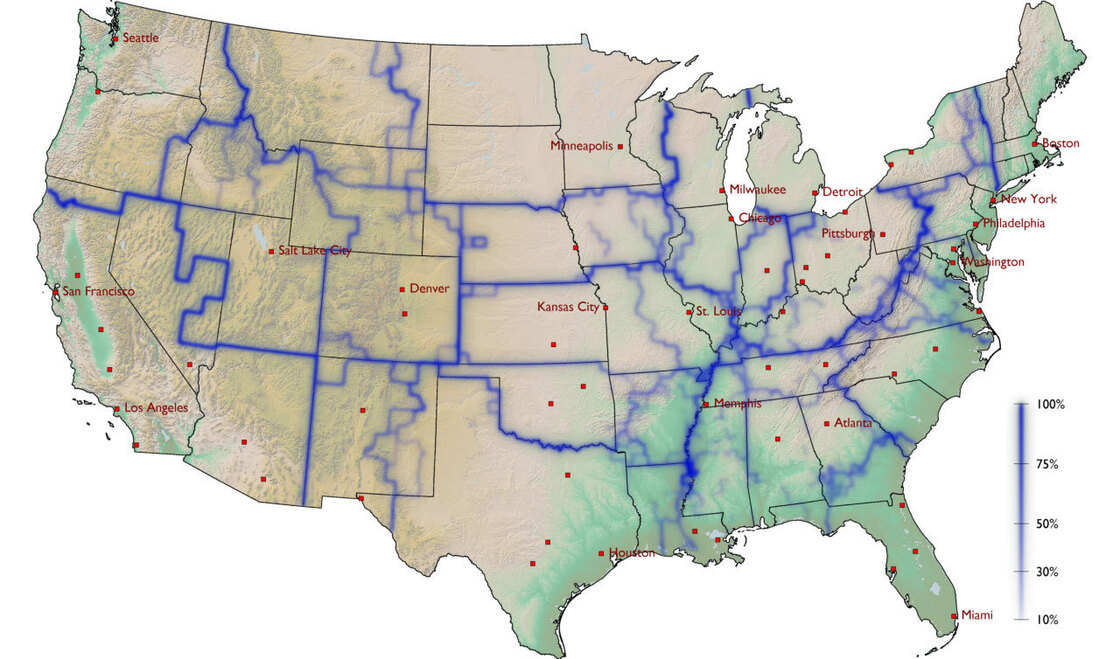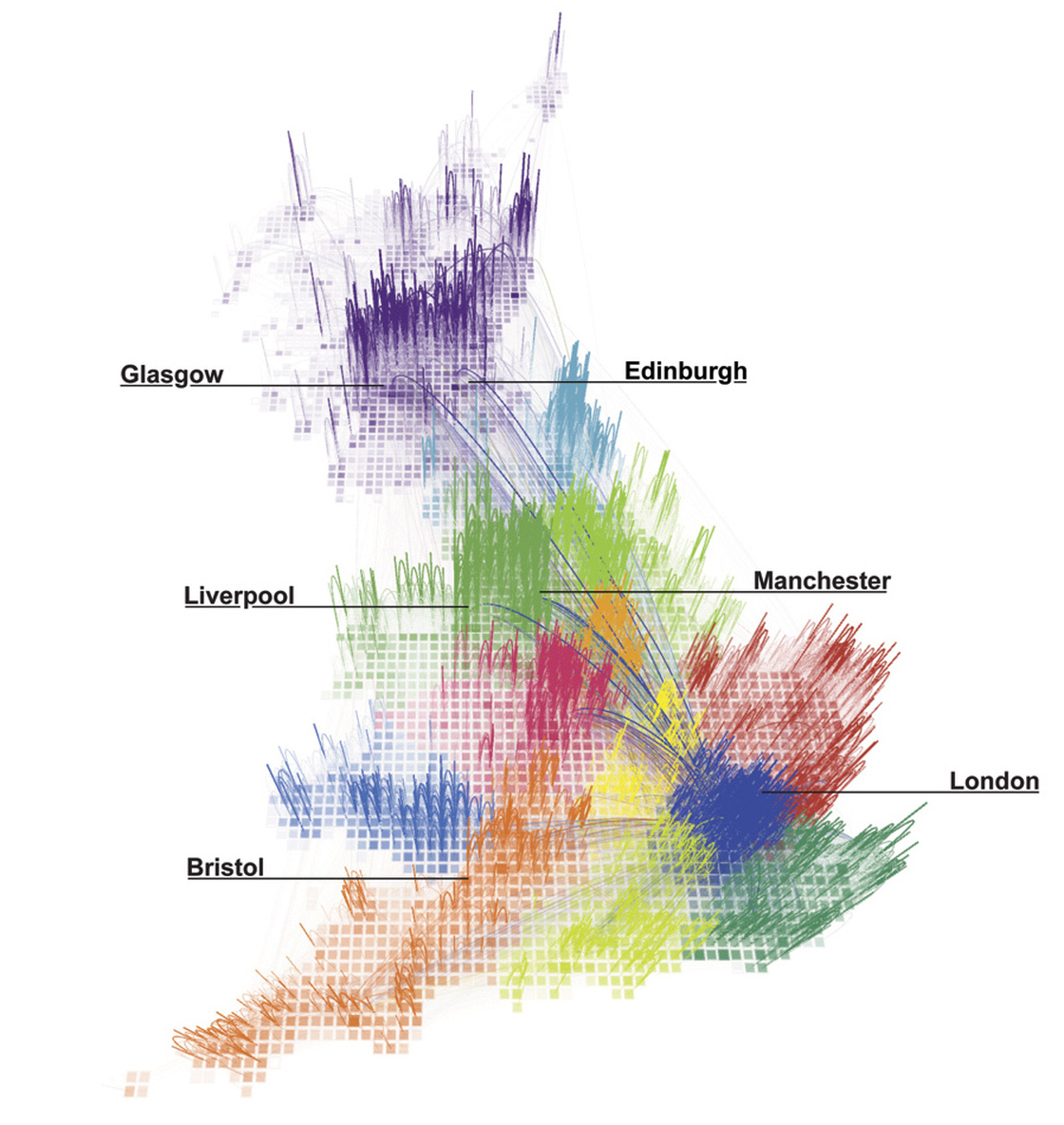If you’re lucky to be Irish, you’re lucky enough.
— An Irish proverb
A question is often asked: in an anarcho-libertarian society, how would the courts and legislation function? Murray Rothbard addresses this and many other questions in his
book,
For a New Liberty. But here I will only quote an example of the libertarianism in Irish society that he provides. It is very interesting to me from both political and historical point of view, as well as because I like Irish culture, music, language (I was a member of Gaelic club in college) and history.
* * *
The most remarkable historical example of a society of libertarian law and courts, however, has been neglected by historians until very recently. And this was also a society where not only the courts and the law were largely libertarian, but where they operated within a purely
state-less and libertarian society. This was ancient Ireland — an Ireland which persisted in this libertarian path for roughly a thousand years until its brutal conquest by England in the seventeenth century. And, in contrast to many similarly functioning primitive tribes (such as the Ibos in West Africa, and many European tribes), preconquest Ireland was not in any sense a "primitive" society: it was a highly complex society that was, for centuries, the most advanced, most scholarly, and most civilized in all of Western Europe.
For a thousand years, then, ancient Celtic Ireland had no State or anything like it. As the leading authority on ancient Irish law has written: "There was no legislature, no bailiffs, no police, no public enforcement of justice . . . . There was no trace of State-administered justice."
9
How then was justice secured? The basic political unit of ancient Ireland was the
tuath. All "freemen" who owned land, all professionals, and all craftsmen, were entitled to become members of a
tuath. Each
tuath's members formed an annual assembly which decided all common policies, declared war or peace on other
tuatha, and elected or deposed their "kings." An important point is that, in contrast to primitive tribes, no one was stuck or bound to a given
tuath, either because of kinship or of geographical location. Individual members were free to, and often did, secede from a
tuath and join a competing
tuath. Often, two or more
tuatha decided to merge into a single, more efficient unit. As Professor Peden states, "the
tuath is thus a body of persons voluntarily united for socially beneficial purposes and the sum total of the landed properties of its members constituted its territorial dimension."
10 In short, they did not have the modern State with its claim to sovereignty over a given (usually expanding) territorial area, divorced from the landed property rights of its subjects; on the contrary,
tuatha were voluntary associations [p. 232] which only comprised the landed properties of its voluntary members. Historically, about 80 to 100
tuatha coexisted at any time throughout Ireland.
But what of the elected "king"? Did
he constitute a form of State ruler? Chiefly, the king functioned as a religions high priest, presiding over the worship rites of the
tuath, which functioned as a voluntary religious, as well as a social and political, organization. As in pagan, pre-Christian, priesthoods, the kingly function was hereditary, this practice carrying over to Christian times. The king was elected by the
tuath from within a royal kin-group (the
derbfine), which carried the hereditary priestly function.
Politically, however, the king had strictly limited functions: he was the military leader of the
tuath, and he presided over the
tuath assemblies. But he could only conduct war or peace negotiations as agent of the assemblies; and he was in no sense sovereign and had no rights of administering justice over
tuath members. He could not legislate, and when he himself was party to a lawsuit, he had to submit his case to an independent judicial arbiter.
Again, how, then, was law developed and justice maintained? In the first place, the law itself was based on a body of ancient and immemorial custom, passed down as oral and then written tradition through a class of professional jurists called the
brehons. The
brehons were in no sense public, or governmental, officials; they were simply selected by parties to disputes on the basis of their reputations for wisdom, knowledge of the customary law, and the integrity of their decisions. As Professor Peden states:
. . . the professional jurists were consulted by parties to disputes for advice as to what the law was in particular cases, and these same men often acted as arbitrators between suitors. They remained at all times private persons, not public officials; their functioning depended upon their knowledge of the law and the integrity of their judicial reputations.
11
Furthermore, the
brehons had
no connection whatsoever with the individual
tuatha or with their kings. They were completely private, national in scope, and were used by disputants throughout Ireland. Moreover, and this is a vital point, in contrast to the system of private Roman lawyers, the
brehon was all there was; there were no other judges, no "public" judges of any kind, in ancient Ireland.
It was the
brehons who were schooled in the law, and who added glosses and applications to the law to fit changing conditions. Furthermore, [p. 233] there was no monopoly, in any sense, of the
brehon jurists; instead, several competing schools of jurisprudence existed and competed for the custom of the Irish people.
How were the decisions of the
brehons enforced? Through an elaborate, voluntarily developed system of "insurance," or sureties. Men were linked together by a variety of surety relationships by which they guaranteed one another for the righting of wrongs, and for the enforcement of justice and the decisions of the
brehons. In short, the
brehons themselves were not involved in the enforcement of decisions, which rested again with private individuals linked through sureties. There were various types of surety. For example, the surety would guarantee with his own property the payment of a debt, and then join the plaintiff in enforcing a debt judgment if the debtor refused to pay. In that case, the debtor would have to pay double damages: one to the original creditor, and another as compensation to his surety.
And this system applied to all offences, aggressions and assaults as well as commercial contracts; in short, it applied to all cases of what we would call "civil" and "criminal" law. All criminals were considered to be "debtors" who owed restitution and compensation to their victims, who thus became their "creditors." The victim would gather his sureties around him and proceed to apprehend the criminal or to proclaim his suit publicly and demand that the defendant submit to adjudication of their dispute with the
brehons. The criminal might then send his own sureties to negotiate a settlement or agree to submit the dispute to the
brehons. If he did not do so, he was considered an "outlaw" by the entire community; he could no longer enforce any claim of his own in the courts, and he was treated to the opprobrium of the entire community.
12
There were occasional "wars," to be sure, in the thousand years of Celtic Ireland, but they were minor brawls, negligible compared to the devastating wars that racked the rest of Europe. As Professor Peden points out, "without the coercive apparatus of the State which can through taxation and conscription mobilize large amounts of arms and manpower, the Irish were unable to sustain any large scale military force in the field for any length of time. Irish wars . . . were pitiful brawls and cattle raids by European standards."
13 [p. 234]
Thus, we have indicated that it is perfectly possible, in theory and historically, to have efficient and courteous police, competent and learned judges, and a body of systematic and socially accepted law — and none of these things being furnished by a coercive government. Government — claiming a compulsory monopoly of protection over a geographical area, and extracting its revenues by force — can be separated from the entire field of protection. Government is no more necessary for providing vital protection service than it is necessary for providing anything else. And we have not stressed a crucial fact about government: that its compulsory monopoly over the weapons of coercion has led it, over the centuries, to infinitely more butcheries and infinitely greater tyranny and oppression than any decentralized, private agencies could possibly have done. If we look at the black record of mass murder, exploitation, and tyranny levied on society by governments over the ages, we need not be loath to abandon the Leviathan State and . . . try freedom.
[ad kan]

















 Like Obama, I am a graduate of Harvard Law School. I too have Muslims in my family. I am black, and I was once a leftist Democrat. Since our backgrounds are somewhat similar, I perceive something in Obama's policy toward Israel which people without that background may not see. All my life I have witnessed a strain of anti-Semitism in the black community. It has been fueled by the rise of the Nation of Islam and Louis Farrakhan, but it predates that organization.
Like Obama, I am a graduate of Harvard Law School. I too have Muslims in my family. I am black, and I was once a leftist Democrat. Since our backgrounds are somewhat similar, I perceive something in Obama's policy toward Israel which people without that background may not see. All my life I have witnessed a strain of anti-Semitism in the black community. It has been fueled by the rise of the Nation of Islam and Louis Farrakhan, but it predates that organization.
